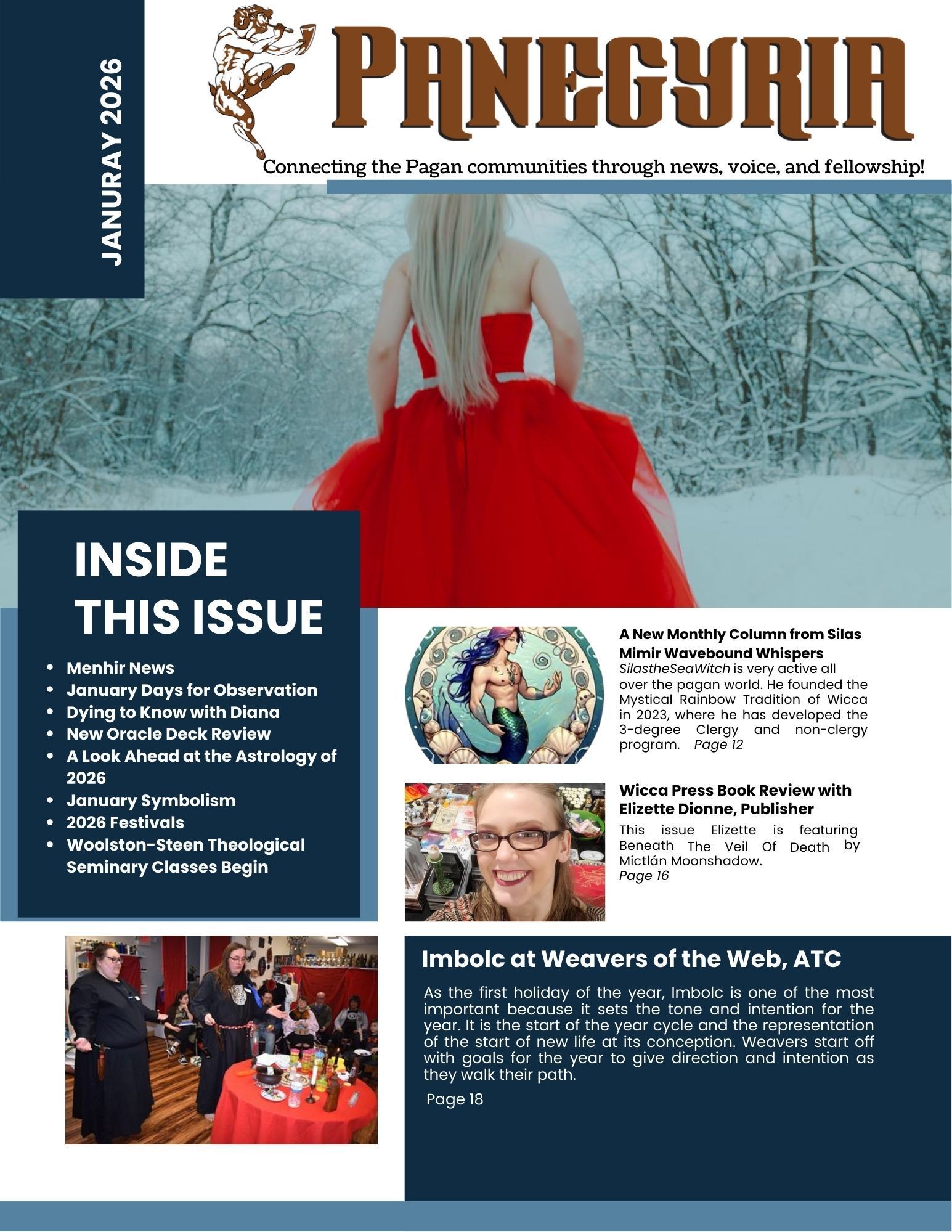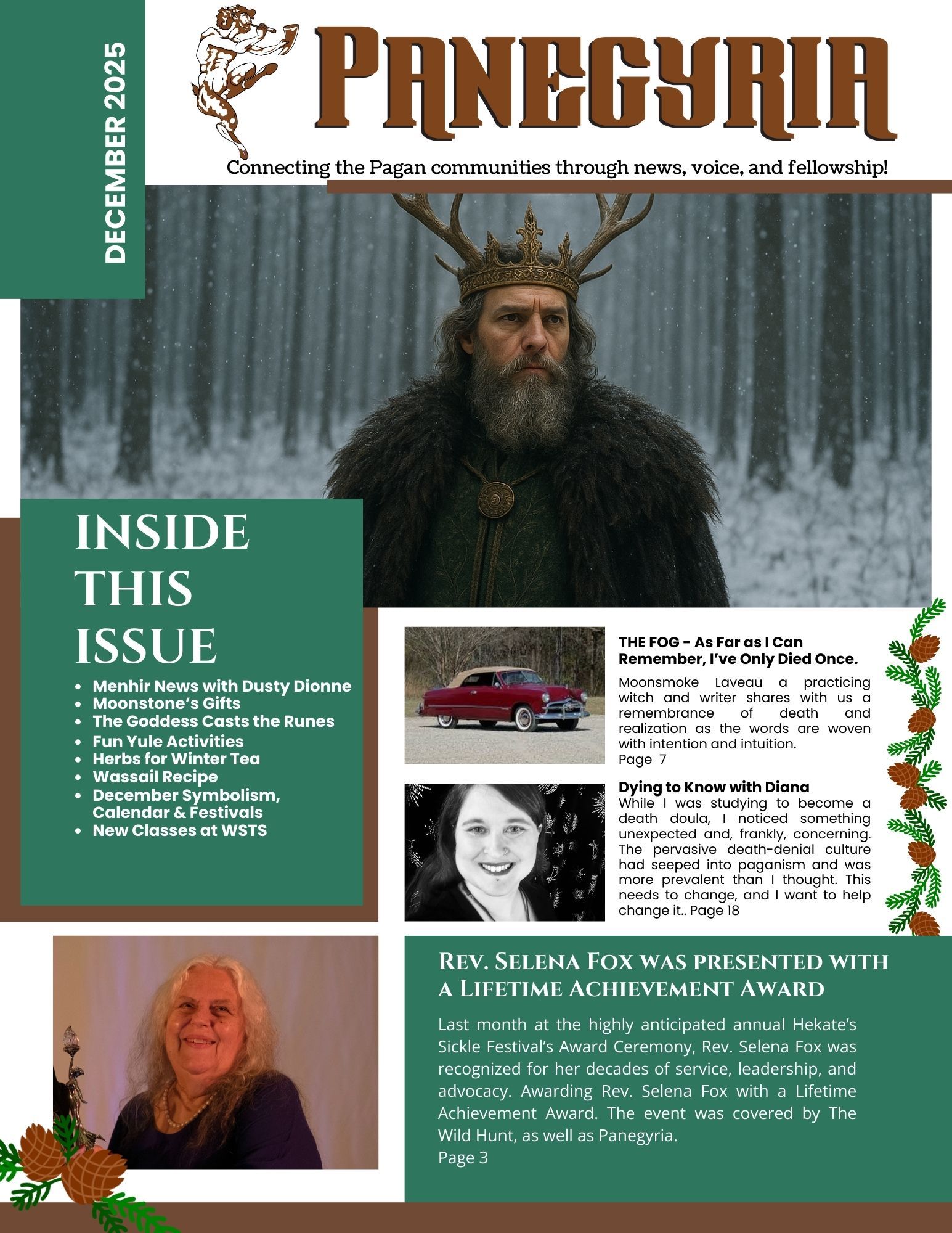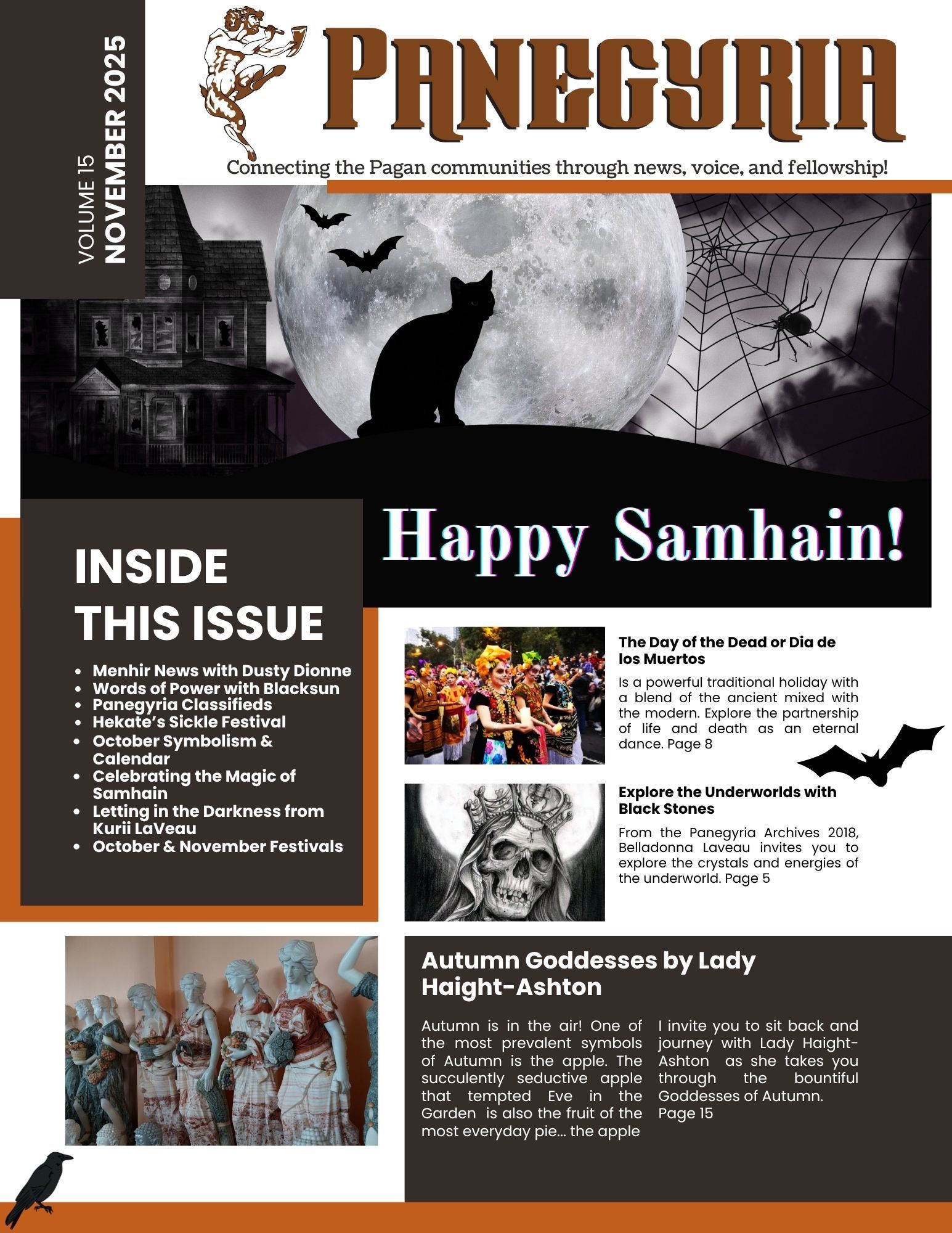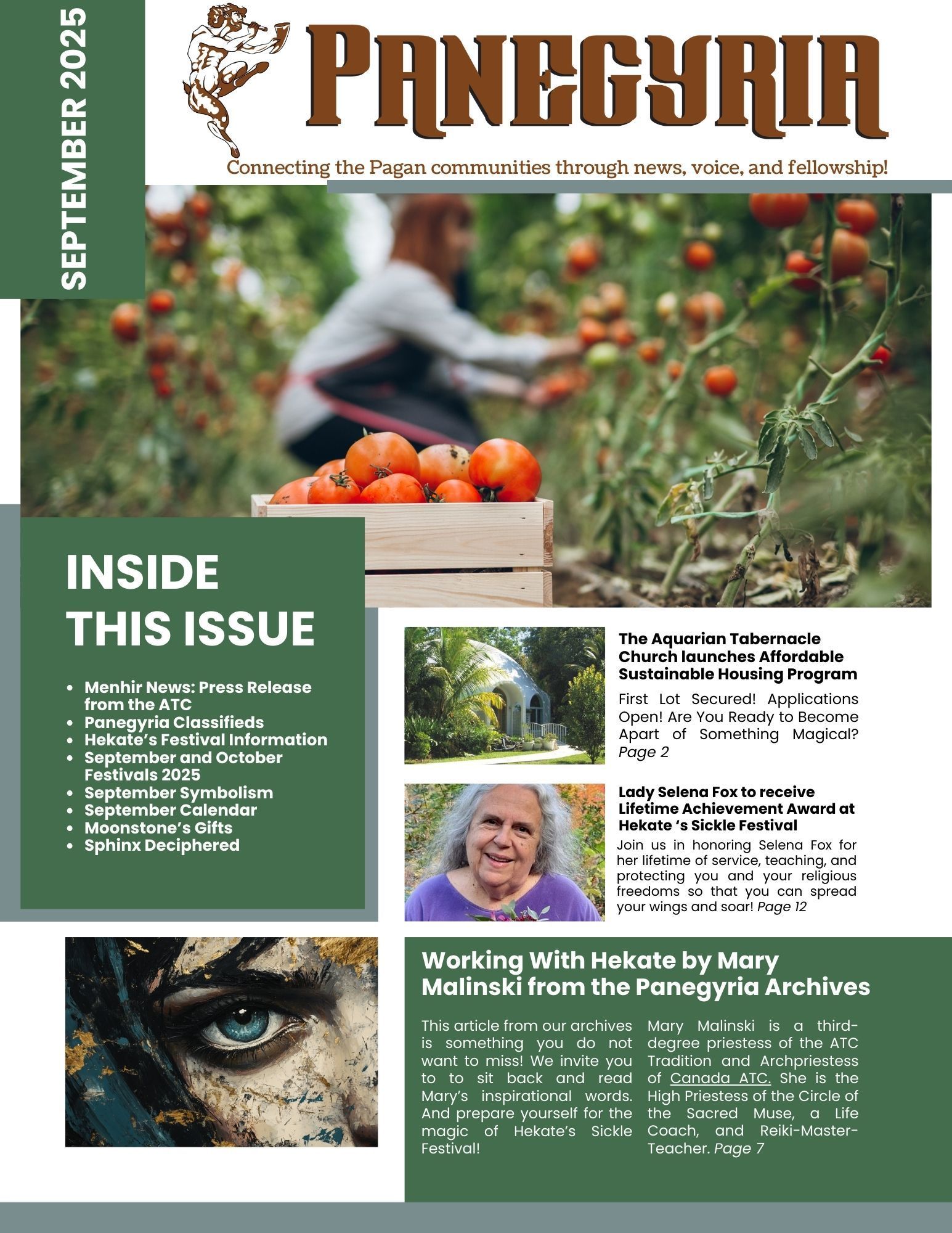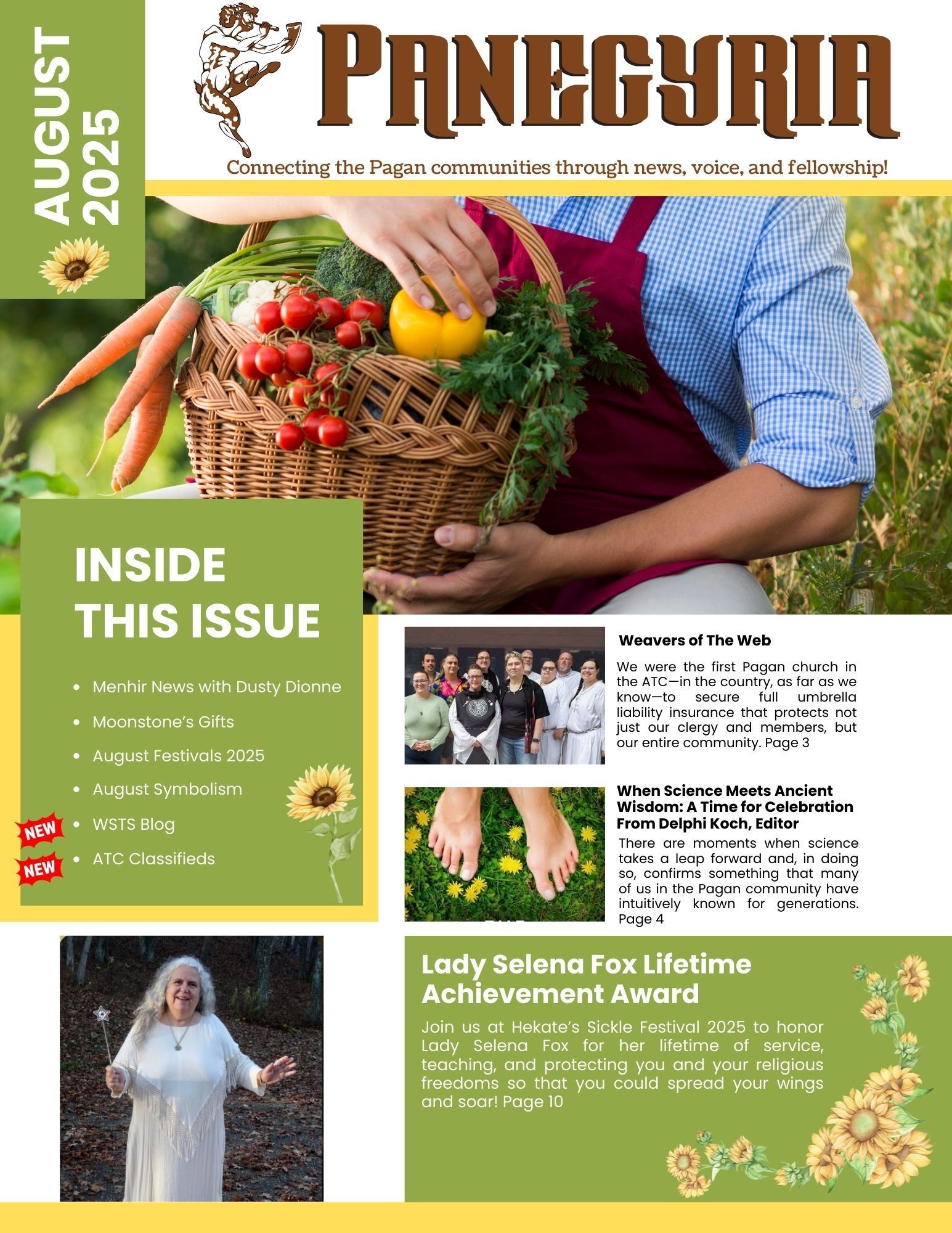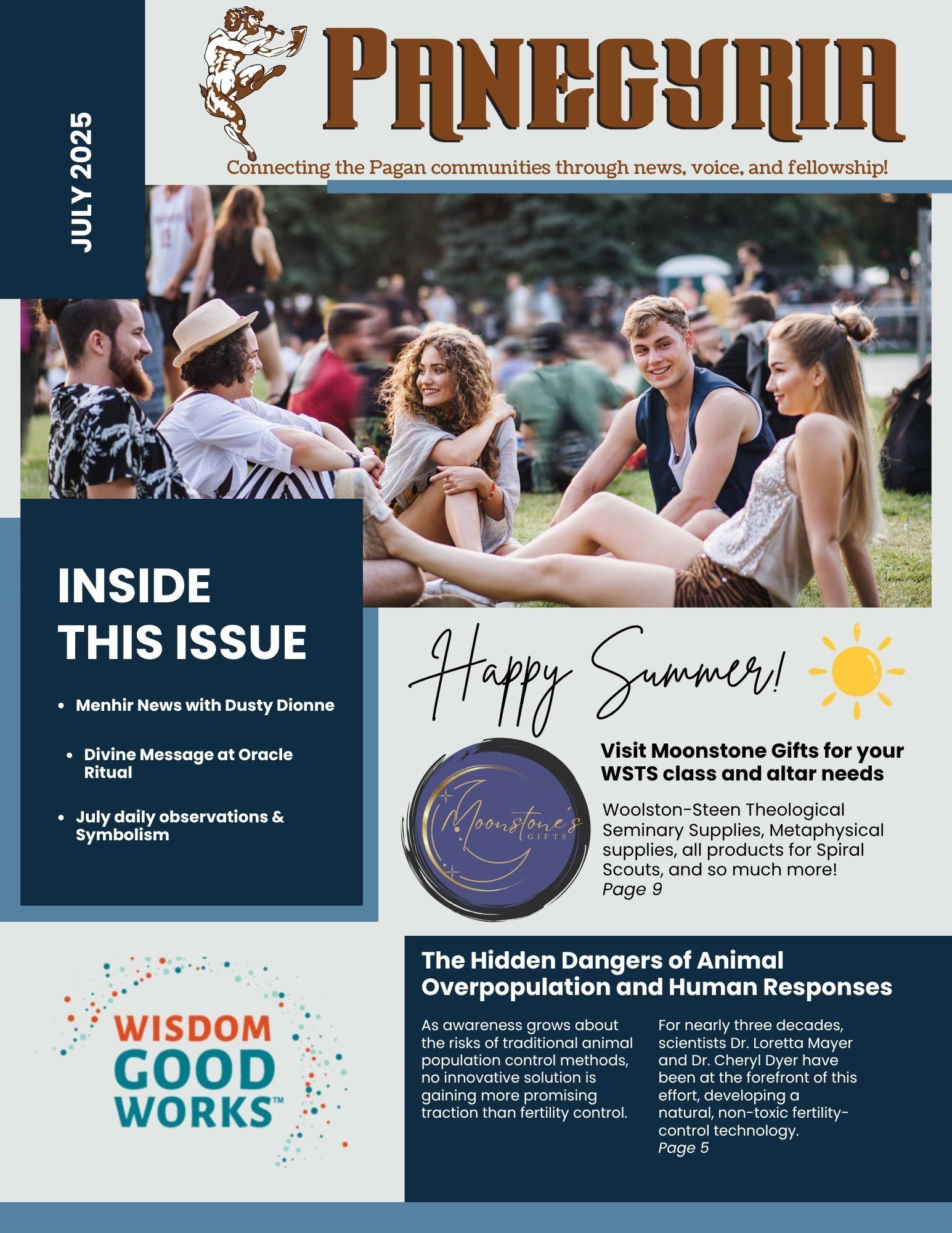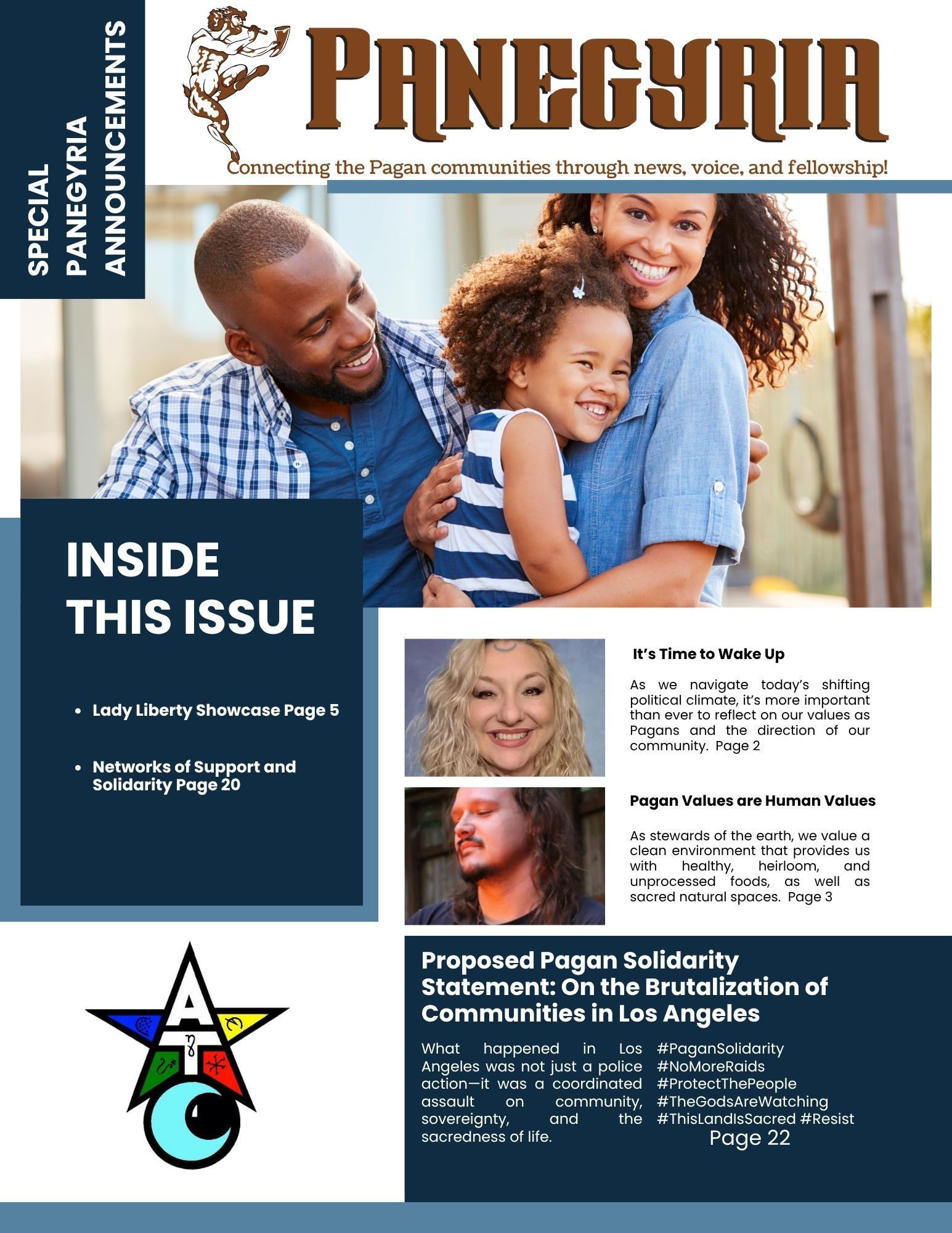Lessons of the Priest
On the Pagan Path: Lessons of the Priest
Holding [Sacred] Space
Grief enters everyone’s life. Whether it is illness, the unexpected passing of a loved one or ongoing tragedies that have marked national and international news bad things happen. It is inevitable but as people we can be of assistance to others. This is what makes us human and connects us as the larger family of mankind. The need for individuals who are mindful of service to others is more urgent than ever in this increasingly complex world we find ourselves living in. This article is perspective, a call to action but not training. It may motivate you to grow and find such training for yourself.
In many faiths priests (gender neutral) are often on the front line of trauma. As a priest, one is often called upon help people in times of distress sometimes by that person or those around them. It may be something traumatic happening to them personally, their family or loved ones or trauma in their community.
As Pagans, we know that we do not require a priesthood since all of us have direct connection with Deity. As a religion of clergy, we hope to find in priests a deeper wisdom, experience, training and perhaps extend relationships with deity that they share another perspective. Many of us have taken on the role through formal initiation and self-initiation.
My training as a priest has come solely through my Patron and some observations of others. My relationship with my Patron is rich and a Path is filled with complex lessons. The lessons are meant to prepare me to be a better person and for interaction with others. My Patron is Eris.
When individuals are called upon to help someone in times of stress, it’s often referred to as “holding space.” You are somewhere between a witness and a counselor. Your more difficult personal role is to journey with them without interference, judgment or control. You may also find yourself holding space for someone while they hold space for another. It is a sacred and selfless service to others. You are there for them when they are vulnerable and may need to be weak. No matter who you are or what you’ve accomplished, someday someone will be there (by Goddess’ grace) to hold space for you. It’s not required that you be a priest to hold space but it is often who the community looks to in emotional times.
What does it mean to hold space in practical terms? While someone is going through a deep emotional trauma and perhaps life altering experience, your role is less about what you can do for them and more of what you can help them do for themselves. I offer you the Erisian perspective. As a priest of Eris, vows are specific about our interaction with others. “Teach. Guide. Witness. Do not intervene.”
Some thoughts on holding space
1. Share what’s important in the now
The situation and people have all come together in a point in time as the result of a series of events. The past is over and unchangeable, the future unknowable. The now is all that matters. Be an oasis for other to gather in their own strength rather than attempting to direct the situation.
In situations such as these there’s a lot going on. Perhaps someone is going to pass over, in the next few weeks. Reminding a person to contact distant friends and loved ones is in the now. Asking them if they want catering after a memorial service is probably a later activity.
2. Be a guide or instructor. Don’t take over.
In times of mourning or grief, the person(s) left behind are often paralyzed with indecision. It’s too easy for strong personalities to enter in, with best intentions, and try to solve things. Taking away even simple decision making takes away their personal power and strength. It can scar or set them on a different Path for a long time.
Your ability to witness, be present and mindful, while offering non-judgmental wisdom is all that needs to be done. Presenting experiences and outlining options or giving them a process is healthy. You will make them stronger and give them the power to make decisions that will often have long term effect. In situations where the person is fully incapable for some reason, there may be a reason to acquire aid for them. This is not to be done without conscious consent of their life partners or family.
3. Offer parallels and not platitudes
Talking is an often-used form of providing comfort. Remember how your words have intent and create the world around us. Our remarks, even with the best intentions, may be less than helpful. Often used remarks that could be phrased a different way:
-
“Goddess never gives us more than we can handle”
-
This evokes all types of questions and is a test of anyone’s faith.
-
Suggest: “It’s okay to grieve at your own pace.”
-
-
“I know how you feel”
-
No, you don’t. You are not that person and don’t know how they are processing recent events.
-
Suggest: “We are here for you when you’re ready to talk”
-
-
“How are you?”
-
In American society, we often use it in place of “Hello.” This often turns into a plea to them to make you feel better. You need to hear the answer that they are enduring, getting on with life, getting over it etc. it’s an unnecessary pressure them
-
Suggest: “I understand this is difficult for you”
-
-
“What can I do for you?”
-
Don’t add the responsibility of finding some way for you to be helpful.
-
Volunteer practical things. “I’d like to drop off some meals.” “I can take the kids to after school activities for the next few weeks.” “We’d like to shovel the snow from your driveway.”
-
-
Saying nothing at all
-
Sometimes, it is enough to sit with a person and let them know you’re there. However, many people are uncomfortable with silences and therefore they seek to fill the void. Communicate, even in small ways. Try some of these others expression of support lest you create a situation where they now must take responsibility to make you feel better. If you feel uncomfortable, excuse yourself from the situation.
-
4. Create safe and sacred space for them
Chaos, change and death are all part of the natural order. Build the oasis for them and let them come at their own pace. Give them a place to be safe, sacred, weak and away from judgment. These are times when you can build a barrier where they can be alone with their thoughts and choices. Casting a circle, a ring of white light/barrier or simply suggesting they sit in a grounding salt-water bath make them strong to be weak when and if they need it.
Think of it as putting pillows on a coach. Let other arrange as they see fit.
5. Do them the honor of different choices
Their choices are their choices. Don’t interfere with their power and make them second guess particularly in stressful times. You may not have chosen an action or made the same selection. It’s not your choice to make. It’s okay for them to make mistakes. Honor that they may have different rituals that you might expect. Be mindful and remember this is not about you. Remove any ego. If you cannot, excuse yourself from the situation.
__________________________________________________________________________________________
This is one of many lessons, that a priest has learned. What lessons have you learned from Gods as pilgrim or priest? Panegyria would love to have you share as much of your personal journey/lesson as you care to.
Have a lesson or other story to share? Write to us at editor@atcwicca.org
Blessed be.


